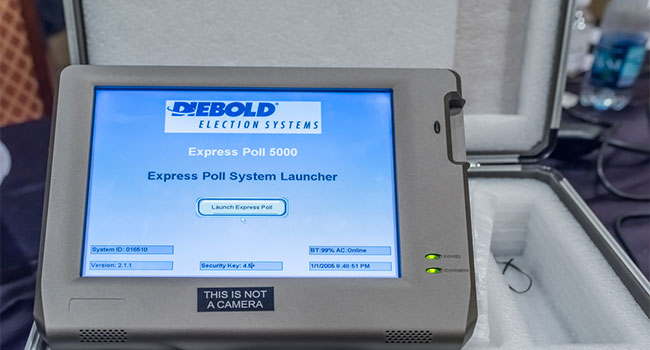
Colorado Becomes First State to Stop Using QR Codes, Barcodes to Count Ballots
The state said it would redevelop its vote tallying system so that voting machines no longer print receipts with QR codes, which Secretary of State Jena Griswold says could be hacked.
- By Haley Samsel
- Sep 18, 2019
Ahead of the 2020 election and the upcoming primary contests, Colorado’s secretary of state announced Monday that the state would no longer count ballots using printed QR codes due to cybersecurity concerns.
Secretary of State Jena Griswold said in a statement that the move is the first of its kind and would increase the security of vote tabulation by prioritizing human verification of votes rather than leaving the task to voting machines. Currently, Colorado voters (and many voters across the country) may use a ballot marking machine that prints a paper ballot that displays their choices and a QR code containing their votes.
Griswold was concerned by the fact that voters could see their vote choices but could not verify that the QR code was correct. In her office’s announcement, she said that QR codes could be among the “next target of an attack and are potentially subject to manipulation,” particularly in the face of continued attempts by Russian hackers to interfere in U.S. elections.
“A voter can verify the ovals, the candidates they chose, but how it gets tabulated is actually through an encrypted QR code," Griswold told CNN. "Is it really a voter verified paper trail if a voter cannot verify the encrypted QR code?"
In her announcement, Griswold said that the state is currently working on an “enhanced system” for vote tabulation that will be tested and certified before it is deployed for elections. The state has signed a contract with its vendor, Dominion, to develop an upgrade that will print ballots with choices marked with darkened ovals, mimicking how paper ballots appear.
“Once fully implemented, all ballots voted in Colorado will be tabulated using the marked ovals on the ballot rather than information from a QR code,” the announcement reads.
Colorado will also no longer certify machines that count votes by QR or barcode starting in 2021, according to CNN. Sen. Ron Wyden (D-Oregon), an outspoken advocate for increased federal election security measures, noted that the machines are a “ripe target for hackers” and applauded Colorado for taking action.
"Given the serious, credible threat that Russia and other governments will interfere in the 2020 election, it is vital that all states follow Colorado's example by prioritizing cybersecurity over the special interest voting machine lobby," Wyden told CNN.
While it’s yet to be seen if other states will follow Colorado’s lead, researchers said that they would not be surprised to see election officials pursue similar measures later down the line.
“Colorado has put more effort into election security and being at the forefront than any other state,” Larry Norden, director of the Brennan Center’s Election Reform Program, said. "The fact that Colorado pushed a vendor to adopt a ballot-marking process without a QR code, I wouldn't be surprised if other states start to follow.”
About the Author
Haley Samsel is an Associate Content Editor for the Infrastructure Solutions Group at 1105 Media.